
Sound Recordist
周平(笠智衆)は、妻とは死別し、長男の幸一(佐田啓二)は結婚して家を出て団地暮らし。いまは娘の路子(岩下志麻)と次男の和夫(三上真一郎)と3人安らかに暮らしていた。 ある日、周平はいつものように友人の河合(中村伸郎)、堀江(北龍二)と酒を飲みに行く。 話題は路子の嫁行きの話になり、まだ路子を嫁にやることなど考えてもいなかった周平は悩み始める…。 日本映画界の巨匠・小津安二郎監督の最後の作品で、妻に先立たれた男とその子供達の幸せの中にもなぜか潜む孤独と寂しさを描いた作品。

Sound Recordist
A woman diver in great peril is rescued by Shinji, a fisherman. But his deed is belittled by Takiko, another diver, as a rash act. Her attitude, however, is nothing but a cloak to hide her affection for him. Shinji, hard working and manly, becomes the focus of many yearning eyes and Seikichi, the boss' son, picks a quarrel with him and violent fight ensues in which Shinji kills a man in self-defense.

Sound Director
郊外の住宅地、長屋のように複数の家族が隣り合って暮らしている。林家の息子実(設楽幸嗣)と勇(島津雅彦)はテレビがほしいと両親にねだるが、聞き入れてもらえない。子供たちは、要求を聞き入れてもらえるまで口を利かないというストライキをして、最終的に買ってもらうのだった。
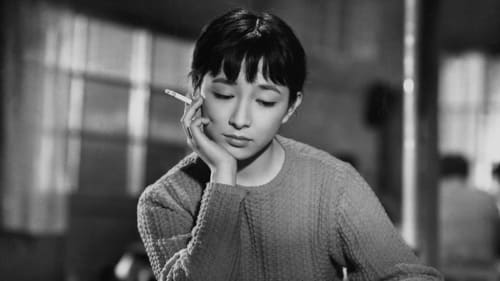
Sound Recordist
親子愛の断層に焦点を当てた巨匠・小津安二郎の異色作――― 杉山周吉は、20年前、妻にその愛人と逃げられ、長女を嫁がせた今、次女・明子とひっそりと暮らしている。だが、最近明子の帰宅が遅れがちなことに気をもんでいた。明子は年下の恋人の子を妊娠、それを知って姿を消してしまった彼を毎晩探しさまよっていたのだ。そんなある日、ふとしたことから明子は自分や父を捨てた実母と再会。何も知らなかった明子は、母のみだ…

Sound Recordist

Sound Recordist
Machiko and Haruki’s drama continues. Machiko is not allowed to see Haruki. They finally meet again, but Haruki departs to Europe.

Sound Recordist
「家族会議」の山ロ松三郎製作の春青メロドラマ。「沖縄健児隊」の沢村勉のオリジナル・シナリオから「処女雪」の原研吉が監督した。撮影は「朝霧(1953)」の森田俊保、音楽は「勢揃い 大江戸六人衆」の加藤光男。出演者は大船映画初出演の「花の生涯」の草苗光子、「蛮から社員」の三島耕、「家族会議」の月丘夢路、「青春三羽烏」の三橋達也などである。

Sound Recordist
A young woman becomes president of a business.
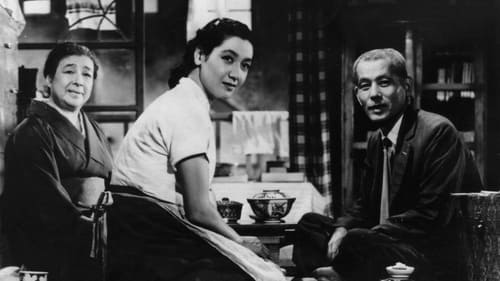
Sound Recordist
戦後変わりつつある家族の関係をテーマに人間の生と死までをも見つめた深淵なドラマ。故郷の尾道から20年ぶりに東京へ出てきた老夫婦。成人した子どもたちの家を訪ねるが、みなそれぞれの生活に精一杯だった。唯一、戦死した次男の未亡人だけが皮肉にも優しい心遣いを示すのだった……。

Sound Recordist
A young student falls into a hopeless romantic attraction to a sick girl, whom he can only see from afar.
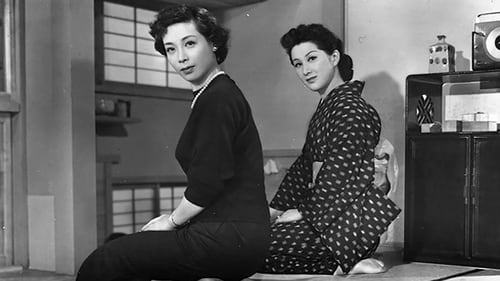
Sound Recordist
田舎出身の佐竹茂吉は、社長の親友の娘で上流階級育ちの妙子と結婚した。妙子は一等車での旅行や野球観戦などで遊び回り、茂吉は妙子の嫌いなタバコ「朝日」を吸い、出かけるときは三等車に乗り、酔って帰ってはお茶漬けを食べていた。茂吉と妙子の溝は深まるばかり。妙子が同級生の住む神戸へ旅行している間に、茂吉の海外出張が決まり、妙子に連絡がつかないまま茂吉は日本を発ってしまう。

Sound Recordist
Nami (波 Nami) is a Japanese film directed by Noboru Nakamura. It was entered into the 1952 Cannes Film Festival.
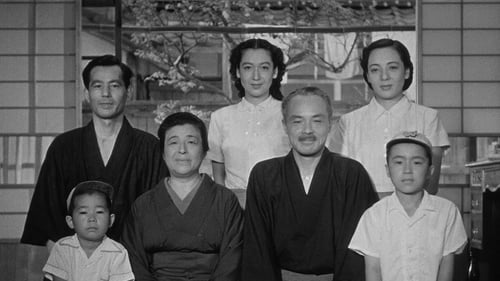
Sound Recordist
結婚にあまり興味のない娘と、そんな娘に早く結婚してほしいと気を揉む家族を中心にさりげない日常をユーモアを織り交ぜ淡々と細やかに描く感動作。敗戦後わずか6年の作品とは思えないモダンな息づかいには驚かずにはいられない。北鎌倉に住む間宮家では適齢期を過ぎた娘紀子の結婚が何より気がかり。当の紀子は大手の会社で秘書として働き、いまだのんきに独身生活を楽しんでいる風だった。やがて、そんな紀子に縁談話が立て続けに舞い込むのだったが……。 巨匠・小津安二郎監督を代表する傑作の1本。
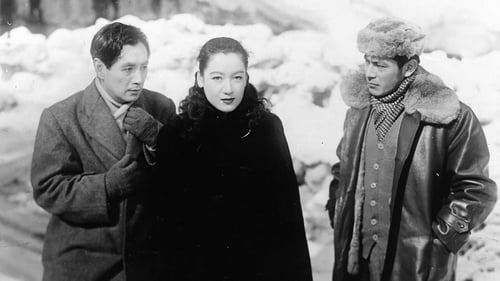
Sound Recordist
Kameda, who has been in an asylum on Okinawa, travels to Hokkaido. There he becomes involved with two women, Taeko and Ayako. Taeko comes to love Kameda, but is loved in turn by Akama. When Akama realizes that he will never have Taeko, his thoughts turn to murder, and great tragedy ensues.
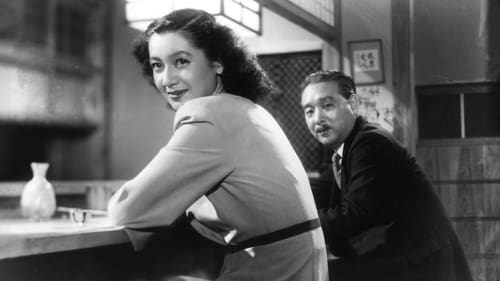
Sound Mixer
鎌倉で一人娘の紀子と2人で暮らす大学教授の曽宮周吉。妻を早くに亡くしたこともあり、紀子は27歳になる今でも父を置いてよそへ嫁ごうとはしなかった。周吉の実妹・田口まさは、そんな2人が気が気でなく、何かと世話を焼いていた。いつまでも渋る紀子を結婚させるため、周吉はついにある決断をするのだった。
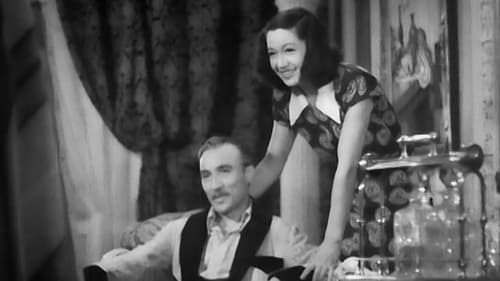
Sound
After Japan's loss in the war, the wealthy, cultured, liberal Anjo family have to give up their mansion and their way of life. They hold one last ball at the house before leaving. The seemingly cold, cynical son secretly grieves for his defeated father and the values that the war destroyed, while the daughter tries to prevent father from taking his life and to find her own place in the new Japan.
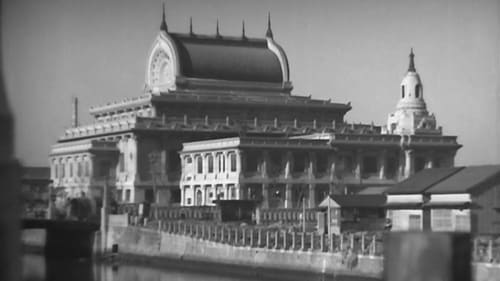
Sound Recordist
An errant salaryman's son gets lost until a man from the Tokyo tenements brings him to vendor Tane, who's reluctant to let the kid board.
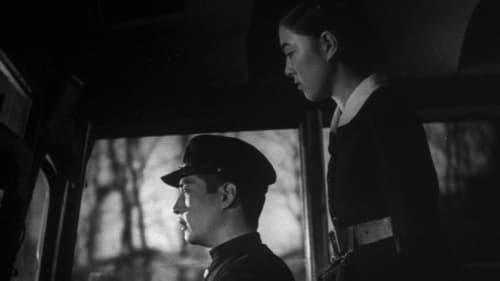
Sound Recordist
A wealthy family will not allow the military to grow crops on their fields due to their superstitious beliefs about their son's illness.

Sound Recordist
Based on the true story of a 17-year old Atayal girl called Sayun Hayun from Nan'oku village, Giran district, Taihoku Prefecture (in current Taiwan) who went missing and was thought to have drowned whilst helping carry the luggage of her teacher Masaki Takita during a storm in 1938.
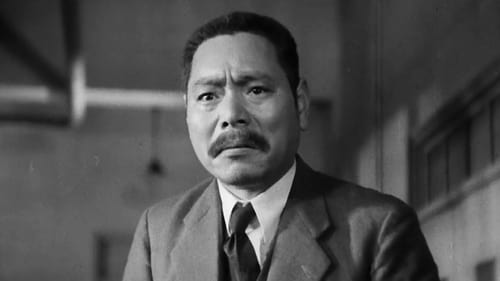
Sound Recordist
金沢の中学教師である堀川周平は、妻を失い、小学生の良平と二人で暮らしていた。しかし修学旅行先で教え子を溺死させてしまい、責任を感じた周平は学校を退職。出身地の信州に帰るが、中学生になった良平を寄宿舎に預け、一人で東京の工場に勤めることにする。帝大を卒業し教師となった良平は、久々に父親と温泉宿で再会し、教師を辞めて一緒に暮らしたいと告げた。しかし周平は「今の仕事を投げ出してはいけない」と息子を諭すのだった。
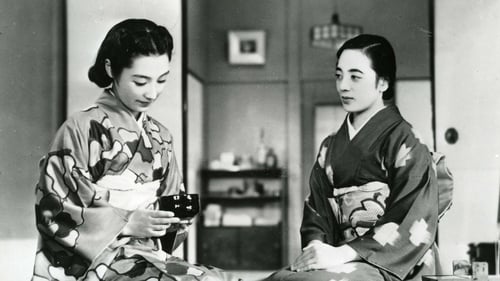
Sound Recordist
After the death of her husband, Mrs Toda and her youngest daughter receive a frosty welcome from the extended family.

Sound Recordist
Adaptation of Kishida Kunio's novel. Set against the backdrop of a power struggle within a hospital, depicts the love lives of the director's daughter, the administrative director, a doctor, and a nurse.

Sound Recordist
A young doctor, Kozo Tsumura, falls for young nurse Katsue Takaishi. But she's got a secret: she's a widow with a son. Kozo and Katsue decide to run away to Kyoto, but her child suddenly became sick and she just missed the train and Kozo. She makes it to Kyoto finally, but is unable to meet him. Plus she isn't accepted into Kyoto society. She goes back to her hometown and tries to forget him. She quits the hospital to concentrate on her singing. She makes her professional debut with the hit "Aizen Katsura". Kozo is in the audience.

Sound Recordist
This pair of gentle yet witty and inventive comedies from the director of The Neighbour's Wife and Mine typify both the formal experimentation of early Japanese sound cinema and the social milieux that Shochiku tended to depict. 'Virtually plotless, and feeling more like comic sketches than fully developed stories,' writes Arthur Nolletti, Jr, 'these light comedies, or farces, take a wholly trivial matter (often a socially embarrassing situation) and use it as a springboard for a succession of gags.' Much of the films' distinction comes from the wit of Gosho's direction, the imaginative use of the new sound technology and the charm of the acting, particularly of the heroines (Kinuyo Tanaka in Bride; Hiroko Kawasaki in Groom). Yet in both films, Gosho finds room for some shrewd observation of character and environment, subtly exploring the values and assumptions of the suburban petit bourgeoisie.





















